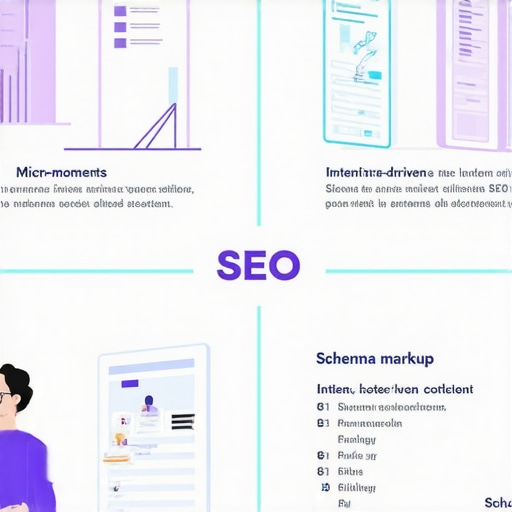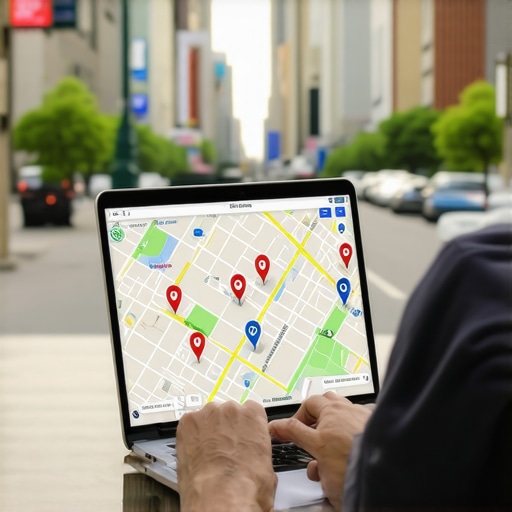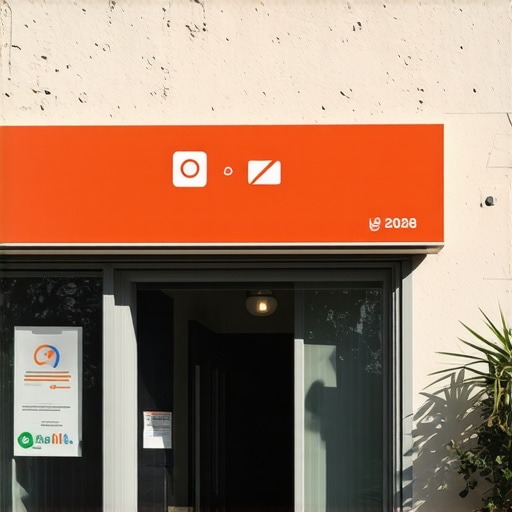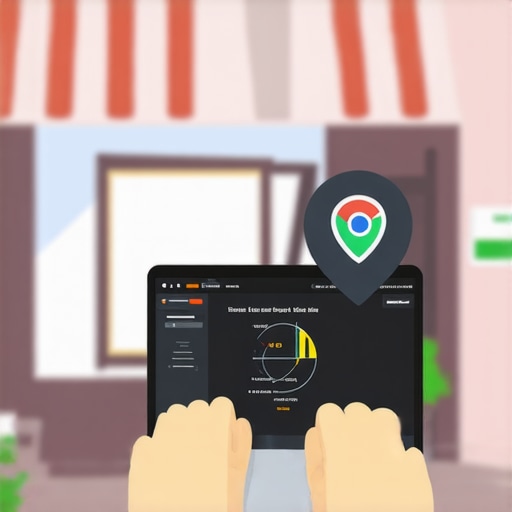Unlocking the Secrets of Local SEO: Why Your Business Needs a Strategy That Works
Imagine walking into a bustling local coffee shop, only to find it tucked away in a quiet corner, invisible to the busy crowd. That’s exactly what happens when your local SEO game is weak. In the digital age, being found on Google My Business isn’t just a bonus—it’s a necessity. The good news? With the right local SEO services, your business can shine brighter than ever in local search rankings.
Why Local SEO Is More Than Just a Buzzword
Local SEO is the art and science of optimizing your online presence to attract more local customers. Think of it as a GPS for your potential clients—guiding them straight to your doorstep. From Google My Business optimization to local keyword strategies, mastering these elements can dramatically increase foot traffic and conversions. Remember, 78% of local mobile searches lead to offline purchases, according to Google’s own data. That’s a statistic that should make any business owner sit up and pay attention.
Are You Playing the Local Search Game Correctly?
One thing’s for sure—many businesses are missing out on golden opportunities because they don’t understand the nuances of local SEO. It’s not just about stuffing keywords or creating a Google profile; it’s about strategic, consistent efforts that build authority and trust. For instance, regularly updating your GMB profile with fresh photos, responding to reviews, and utilizing local schema markup can make a world of difference. Want to learn more? Check out our local search tips for better SEO results.
What’s Next? Crafting a Winning Local SEO Strategy
Ready to dive into the nitty-gritty? Start with a comprehensive audit of your current Google My Business listing and local citations. Then, focus on creating high-quality, locally relevant content that resonates with your community. Don’t forget, backlinks from local directories and partnerships can boost your credibility and rankings. And if you think that’s all, think again—keeping an eye on your analytics and adapting your strategy is key to sustained success.
Looking for expert guidance? Consider exploring our effective SEO services designed specifically for local businesses. Remember, the digital landscape is always evolving, and staying ahead requires both knowledge and action.
So, tell us—what’s your biggest challenge with local SEO? Drop a comment below and let’s discuss how to turn your Google My Business into a local powerhouse!
How Can You Leverage Local SEO to Outrank Competitors in 2024?
In the ever-evolving landscape of local search, staying ahead requires a nuanced understanding of the latest strategies and algorithm updates. While many businesses focus on basic GMB optimizations, advanced tactics such as hyper-local content, voice search optimization, and AI-driven review management are becoming game-changers. These techniques not only improve visibility but also foster deeper community engagement, which is crucial for sustained growth. Want to dive deeper into these innovative approaches? Explore our effective local search strategies for 2024.
Are You Missing These Hidden Opportunities in Your Local SEO Campaign?
Many local businesses overlook subtle yet impactful elements like NAP consistency across all listings, local backlinks, and schema markup tailored for local entities. These factors contribute significantly to Google’s trust signals, influencing your GMB ranking and overall local search presence. Additionally, leveraging user-generated content and community-focused events can enhance your relevance and authority. According to Moz’s Local SEO guide, optimizing these lesser-known parameters can lead to tangible improvements in local pack visibility (Moz’s authoritative resource). Are you harnessing these hidden gems in your strategy yet?
Thinking about elevating your local SEO efforts? Consider integrating comprehensive GMB optimization techniques that go beyond the basics. Regularly auditing your local citations, enriching your profile with keyword-rich descriptions, and engaging with customer reviews are essential steps. For a holistic approach, aligning your local SEO with content marketing and social media outreach creates a synergy that amplifies your business’s local authority.
And if you’re eager to see real-world results, don’t forget to monitor your analytics meticulously. Tools like Google Analytics and Search Console can reveal trends and opportunities you might miss otherwise. Remember, local SEO isn’t a set-it-and-forget-it task; it requires constant refinement and strategic foresight.
What’s the most challenging aspect of local SEO for your business? Share your thoughts below, and let’s exchange ideas on how to turn your Google My Business into a local powerhouse that dominates in 2024!
Harnessing Hyper-Local Content for Precision Audience Targeting
In the competitive realm of local SEO, hyper-local content emerges as a powerful tool to connect authentically with your immediate community. Unlike generic local pages, hyper-local strategies focus on micro-geographies—neighborhoods, streets, or even local events—tailoring your message to resonate deeply. This approach not only boosts relevance but also signals to search engines that your business is a community pillar. For instance, creating blog posts about upcoming local festivals or spotlighting neighborhood stories can generate organic engagement and backlinks, elevating your local authority.
The Nuances of Voice Search in Local SEO Optimization
Voice search continues to revolutionize how consumers find local businesses. Advanced optimization involves understanding conversational search patterns, integrating long-tail keywords, and optimizing for question-based queries. Consider implementing structured data schemas for FAQs and local business details to enhance voice search visibility. According to a study by BrightLocal, 58% of consumers have used voice search to find local information in the past year—making it imperative for businesses to adapt their SEO tactics accordingly.
What Are the Hidden Signals That Influence Your Local Rank Beyond Reviews?
While reviews are well-known ranking factors, many overlook subtler yet impactful signals such as local backlink profiles, NAP consistency, and local schema markup. These elements build a multi-layered trust signal for Google, helping your business climb the local rankings. For example, earning backlinks from local news outlets or community blogs can significantly boost your authority. Moz’s Local SEO Guide emphasizes that a holistic approach—combining reviews, citations, and technical schema—creates a resilient local SEO foundation that withstands algorithm fluctuations (Moz).
To further elevate your local presence, consider leveraging user-generated content from social channels and community engagement initiatives. These not only foster loyalty but also generate fresh, locally relevant content that search engines favor. Remember, a comprehensive review and audit of your local SEO signals can reveal untapped opportunities for optimization and growth.
Maximizing the Impact of Local Citations and Business Listings
Ensuring consistency across all local citations remains a cornerstone of advanced local SEO. Inconsistent NAP information can dilute your trustworthiness in the eyes of Google, impacting your rankings. Beyond standard directories, explore niche citation sources relevant to your industry and locale. Tools like BrightLocal or Whitespark can help identify and manage these listings efficiently. Additionally, implementing local schema markup signals precise location data, helping search engines understand your business context better and enhancing your chances of appearing in rich snippets and local packs.
Moreover, integrating your local SEO efforts with social media outreach and community sponsorships can create a network of signals reinforcing your local relevance. These strategies, combined with continuous analytics monitoring—using tools like Google Search Console and local ranking trackers—enable dynamic adjustments that keep your business at the forefront of local search results.
As local SEO evolves, staying ahead means embracing these nuanced strategies and continuously refining your approach. Are you ready to elevate your local search game and outshine competitors in 2024? Dive deeper into these advanced tactics and consider consulting with a seasoned SEO strategist to craft a tailored, high-impact local SEO plan.
Unlocking Hidden Potential: How Advanced Local SEO Tactics Can Propel Your Business Ahead
In the fiercely competitive realm of local search, merely optimizing your Google My Business profile isn’t enough to guarantee top rankings. Forward-thinking businesses are now leveraging sophisticated strategies that dive deep into niche signals and emerging technologies. For example, integrating AI-powered review management tools can help you respond promptly and personalize engagement at scale, significantly boosting your reputation and trustworthiness. According to Search Engine Journal, AI-driven review monitoring can increase review volume and improve local rankings, making it a vital component of modern local SEO (source).
How Can You Use Micro-Moments and Intent-Driven Content to Capture Local Customers?
Google’s shift towards understanding micro-moments—those intent-driven, context-rich search instances—requires your business to anticipate and address specific local customer needs precisely when they arise. Developing hyper-targeted content, such as localized FAQ pages and time-sensitive offers, can capture these moments effectively. For example, a bakery might create a blog post about fresh bread deliveries during morning hours, aligning with the micro-moment of someone searching for breakfast options nearby. This approach not only elevates your relevance but also aligns with Google’s evolving algorithm, which prioritizes user intent and freshness (Moz).

Visualize your micro-moment strategy with a diagram showing user intent, content types, and local touchpoints.
What Role Do Schema Markup and Structured Data Play in Enhancing Local Search Visibility?
Implementing localized schema markup is no longer optional for serious local SEO practitioners. Structured data helps search engines understand your business context more precisely, enabling rich snippets like star ratings, event details, and product availability to appear directly in search results. This not only boosts click-through rates but also enhances your prominence in local packs. The Schema.org project offers comprehensive guidelines that, when correctly implemented, can turn your listings into compelling visual assets—giving you an edge over competitors who neglect these technical optimizations (Schema.org).
Moreover, combining schema with AI-driven insights on customer behavior allows you to tailor your local SEO campaigns dynamically, ensuring your content remains relevant and engaging.
Expert Insights & Advanced Considerations
1. Hyper-Local Content as a Community Anchor
Developing hyper-local content tailored to neighborhoods, events, and micro-geographies positions your business as an integral part of the community. This targeted approach not only enhances relevance but also signals authority to search engines, boosting local rankings.
2. Voice Search Optimization with Conversational Keywords
Leveraging long-tail, question-based keywords aligned with voice search patterns ensures your business appears in voice-driven local queries. Implementing structured data such as FAQs further amplifies visibility in this emerging search modality.
3. Technical Schema Markup for Rich Snippets
Implementing detailed schema markup—covering local business details, events, and product info—can generate attractive rich snippets, increasing click-through rates and local pack prominence.
4. Micro-Moments and Intent-Driven Content
Understanding and targeting micro-moments—those quick, intent-rich searches—allows your content to meet consumers’ needs precisely when they are most receptive, elevating engagement and conversions.
5. AI-Powered Review and Reputation Management
Utilizing AI tools to monitor, analyze, and respond to reviews at scale enhances your online reputation, fosters trust, and improves local SEO signals, creating a competitive edge in crowded markets.
Curated Expert Resources
- Google’s Official Local SEO Guide: The definitive resource for foundational and advanced local SEO strategies directly from the source.
- Moz’s Local SEO Resources: In-depth articles and guides focusing on technical signals, citation management, and local authority building.
- BrightLocal Blog: Cutting-edge insights on local search trends, review management, and reputation building.
- Schema.org Documentation: The essential technical reference for implementing structured data to enhance search listings.
- Search Engine Journal: Expert articles on AI integration, voice search, and micro-moments in local SEO.
Final Expert Perspective
Mastering local SEO in 2024 demands a nuanced understanding of emerging technologies, user intent, and community engagement. By integrating hyper-local content, optimizing for voice search, and leveraging structured data, your business can outpace competitors and dominate local search results. Remember, continuous refinement—guided by detailed analytics and expert insights—is the key to sustained success. Engage with these strategies actively, and consider consulting seasoned professionals to craft a tailored, high-impact local SEO plan. Your local dominance starts now—are you ready to lead the pack?




This article offers a thorough overview of the nuanced strategies essential for effective local SEO in 2024. I’ve found that hyper-local content, like neighborhood-specific blog posts or spotlighting local events, really helps establish trust and relevance in the community. From my experience managing small business listings, ensuring NAP consistency and leveraging schema markup can significantly impact search visibility. It’s interesting to see how AI tools for review management are becoming more prevalent, offering scalable ways to boost reputation and rankings. One challenge I often encounter is balancing technical SEO improvements with creating genuinely engaging local content. How do others here manage to keep their content authentic while optimizing for these advanced signals? I believe blending community-centered storytelling with technical precision can be the winning approach, but I’d love to hear tips from those with prior success in this area.
This post really highlights the importance of a strategic approach to local SEO, especially in a competitive environment like 2024. I’ve seen firsthand how hyper-local content—such as neighborhood guides or coverage of local events—not only boosts engagement but also significantly enhances search rankings when paired with strong schema markup. One practical challenge I face, though, is maintaining authenticity. It’s tempting to craft content solely for SEO benefits, but that can backfire if it feels disconnected from the community. I’ve found that integrating genuine stories or local insights helps strike that balance. Additionally, AI tools for review management have been a game changer by allowing quick responses and sentiment analysis at scale. I’m curious, how do others ensure their local content stays authentic while still optimizing for these technical signals? Are there particular tactics that have worked well for anyone here in fostering both trust and visibility?
This article resonates with my recent experience working with local businesses to optimize their GMB profiles. One thing I’ve noticed is how hyper-local content, such as neighborhood stories or local event coverage, not only boosts local relevance but also encourages community engagement. I’ve also found that maintaining NAP consistency across all listings is fundamental; even small discrepancies can cause trust signals to weaken. On the technical front, schema markup has been surprisingly effective in helping search engines understand business details, which enhances visibility in local packs. However, balancing the technical side with authentic, community-focused content remains challenging. In my opinion, the key is to integrate genuine local stories and user-generated content to foster loyalty while employing technical strategies like schema and citation management. I would love to hear from others about how they seamlessly combine storytelling with technical SEO. How do you keep your content authentic without sacrificing optimization?
I really appreciate this deep dive into local SEO strategies. Having worked with small local shops, I can attest to how crucial hyper-local content and consistent NAP information are for elevating visibility. One aspect I’ve found especially effective is incorporating community-driven events into content calendars—these not only boost local relevance but also foster stronger community loyalty. Regarding AI review management, we’ve started using sentiment analysis tools which help us respond more promptly and authentically. My challenge has always been maintaining genuine engagement while optimizing for SEO, especially balancing storytelling with technical requirements like schema markup. Has anyone here found a smart way to keep content feeling authentic without it seeming overly optimized or robotic? I’d love to hear different approaches that have worked well in your local SEO efforts.